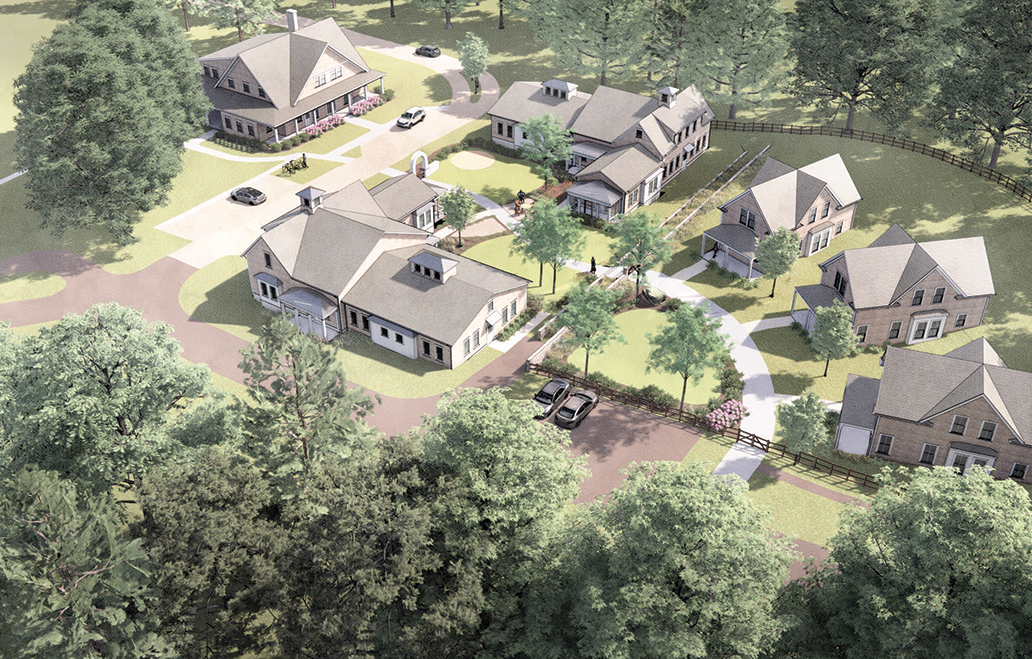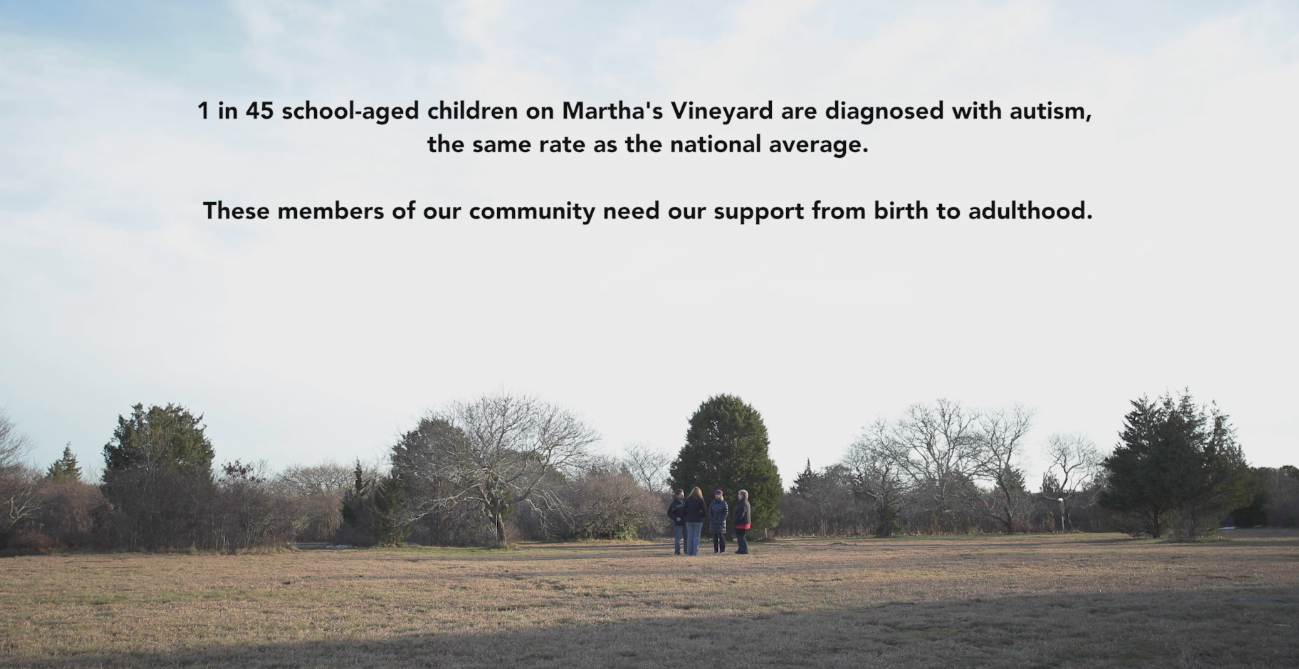The Island Autism Center is a place on Martha’s Vineyard where children and adult residents with autism can live life to its fullest potential.
The Island Autism Center is a residential and day-programming setting in which autistic individuals and their families can thrive. It’s a place where children and adults with autism will enjoy social and therapeutic activities year-round.
Addressing a Local Need
Island families often worry about the lack of resources for their autistic loved ones. The Center aims to eliminate this concern by offering social, physical, and emotional support within the community. This eliminates the need for families to seek programs elsewhere, ensuring autistic individuals can stay close to their families.
There are three main pillars to the Autism Center: residences, programming and our community micro-farm.
Residences
The Center will provide eight residential units with varying configurations, accommodating 12-18 residents. Some units will offer 24/7 on-site staff support. Additionally, a communal Hub House includes a program manager’s apartment, guest rooms, and a commercial kitchen. A barn provides space for community meetings, day programs, and gatherings.
Programming
The Center expands upon our existing programs for autistic individuals, offering therapeutic and enrichment activities tailored to individual needs. It serves as a hub for our summer camps and after-school programs. Adult residents can mentor younger children, fostering positive connections and a sense of community. Partnerships with island organizations and businesses create opportunities for community integration. Dedicated spaces within the Center facilitate collaboration among families, friends, schools, and community members.
Community Micro-Farm
A farm on the property provides hands-on learning opportunities for residents and day-camp participants. They can participate in planting, harvesting, and learning about conservation. The farm also creates job opportunities within the barn, kitchen, camp store, and farm stand.
Who We Serve
Autism rates are rising, with the CDC estimating that 1 in 36 children and 2.21% of adults in the US have Autism Spectrum Disorder (ASD). While support services are crucial, they are often inconsistent due to budget constraints.
The Island specifically faces challenges. There are approximately 450 children with special needs, and an estimated 50 children who would benefit from the Center’s summer camp program. The number of autistic individuals swells during the summer months due to seasonal residents. Adults with ASD are even harder to track due to a lack of diagnosis and support systems beyond school age.
The Center focuses on addressing the needs of autistic children and young adults who currently have limited access to social, emotional, and physical development programs. We aim to fill this critical gap and empower autistic individuals to reach their full potential.
Application Process
There will be an application process in order to qualify to be part of a pool from which a lottery drawing will be pulled. The applications will be scored by a committee made of community members. Points will be given for long-term Island residents and all applicants must have low income status and section 8 voucher eligibility.
Construction Updates
The Island Autism Center’s Phase One is complete! This means the Hub House, which is the heart of our programs, is up and running. The barn, farm stand, fenced-in gardens, and chicken runs are also ready to go.
Even better, our members are already enjoying the farm. They’re working on their skills, spending time with the chickens (and collecting eggs!), and harvesting fresh produce. Twice a week, they take their bounty to sell at the farmer’s market. This program is open to our older high school and adult groups.
Looking ahead to summer, the younger kids will have fun planting projects, playing with the chickens, and enjoying outdoor yoga sessions – all at the farm!

The barn is a beautiful post and beam kit from the same company that designed our farm stand.
The barn is a 30’ x 60’ structure with space for farm animals. The roof space will accommodate solar panels to supply electricity to the entire campus.

The Hub House is the heart and location for all of our programming. The downstairs includes a mud room, a commercial kitchen, a gathering space, a quiet space, a mailroom, and an office. Imagine this: a young adult arrives at the Hub House. They might help out in the kitchen, meet with a job coach to discuss career goals, or participate in a personalized planning meeting with our staff and partner organizations. Meanwhile, downstairs, younger campers can unwind in the gathering space. They can read books, relax, or simply enjoy socializing with others in a comfortable and stress-free environment.

On a typical day, our residents might get up in the morning, collect eggs, bring them to the kitchen and have coffee or tea with staff, and then head out to jobs in the community.

Some might wait for the van to take them to a job or activity, and some might work on the farm, in the kitchen, or another job on campus.
We call this model the “ripple effect”. Each person starts at their own comfort level in their own space, then moves up to more public spaces on campus, and finally “ripples out” into the community where they will be well prepared and trained to take on a full and active life.
Phase Two: Homes with 24/7 Support
Phase Two, which is is underway, is the build of two residential buildings designed for individuals who require around-the-clock care. Each building will feature four private bedrooms with their own bathrooms, along with dedicated space for a caregiver, potentially filled by an adult foster care provider.

Phase Three: Expanding Housing Options
Phase Three will be the construction of three, two-bedroom cottages offering a variety of possible living arrangements for autistic individuals: Two individuals could share a cottage, enjoying some independence without overnight supervision. However, they’ll have the peace of mind knowing staff is readily available next door for emergencies. Or, a single person with more intensive needs can reside in a cottage with 24/7, one-on-one support.
All applicants for any housing option at the Island Autism Center must have a diagnosis of autism or a related disorder.
Construction in Progress!













Fly-Through of the Island Autism Center:













